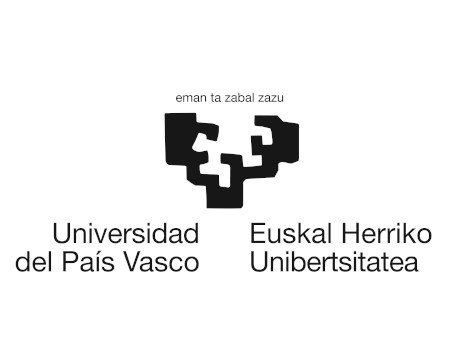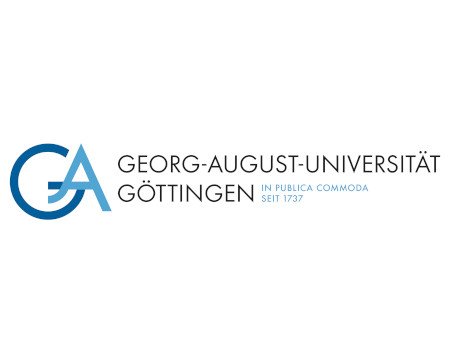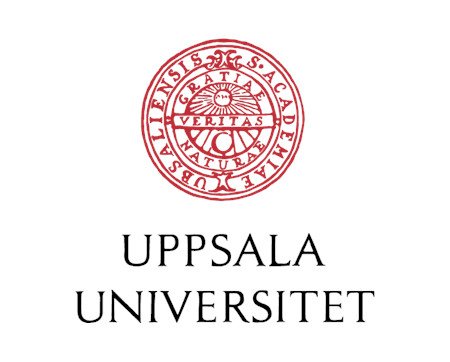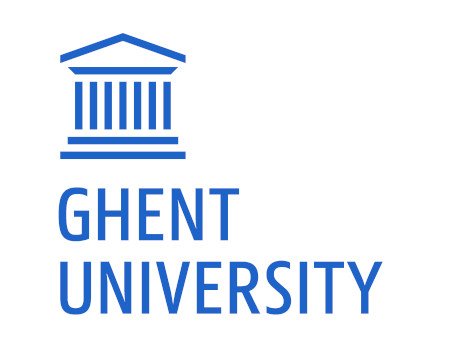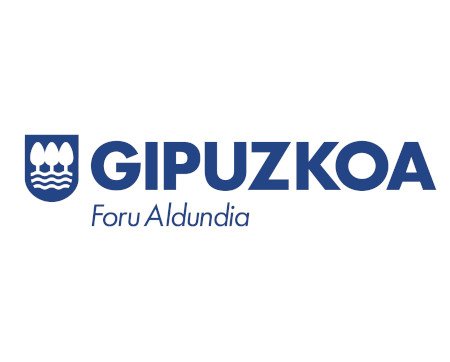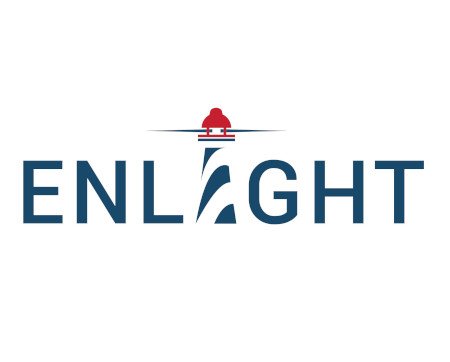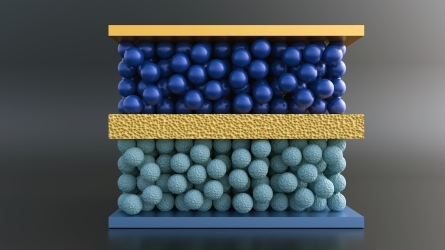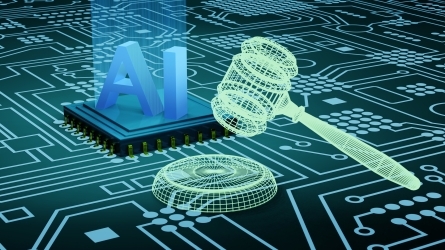
Artificial Intelligence and Law: Technical and legal challenges
Azalpena
Adimen Artifizialeko (AA) sistemak gero eta erritmo handiagoan garatzen ari dira, eta gure bizitzako ia alderdi guztietan daude jada. Adostasuna dago, izan dezaketen eragina dela eta, sistema horiek kontu handiz arautu behar direla. Europak aurrea hartu dio, duela gutxi AI Act onartu ondoren, munduko AA sistemei buruzko lehen araudiari.
Horrek testuinguru berri bat irekitzen du, non AAko eta zuzenbideko profesionalek elkarrekin lan egin beharko duten AA sistemen bizi-zikloaren urrats ezberdinetan, haien kontzepzio eta garapenetik hasi eta erabileratik eratorritako edozein arazo posible konpondu arte. Lankidetza egokia lortzeko lehen urratsa komunikazio eta ulermen ona da, eta horrek eskatzen du bi profil motak gai izatea besteen lanaren atzean dauden oinarrizko ideiak ulertzeko.
Jardunaldi honen helburua da norabide horretan urrats bat ematea, AAren eta haren garapenaren ikuspegi orokorra eskainiz, araututako eszenatoki batean. Gainera, lehen esperientzia izango da, non bi profesional mota hauek elkarrekin eztabaidatzeko aukera izango duten.
Helburuak
Dissemination of the current and future technical and leagal challenges in the regulation of Artificial Intelligence systems.
Promotion of the interdisciplinary discussion of the implications of a regulated framework in the development of Artificial Intelligence systems
Jarduera nori zuzenduta
- Unibertsitateko ikaslea
- Irakasleak
- Profesionalak
Metodologia
Jardunaldiaren programak hitzaldiak (egun bakar batean kontzentratuak) eta lan praktikoa izango ditu. Bi parte hartze mota egongo dira, tailer osoa edo hitzaldiak bakarrik. Hitzaldietara bakarrik joaten diren parte-hartzaileen kopurua ez da mugatuko, baina lan praktikoan plazak mugatuak izango dira, 30 guztira, 15 profil teknikokoak eta 15 profil juridikokoak.
Lan praktikoan, parte-hartzaileek taldean lan egin beharko dute (bi profil motak konbinatzen dituztenak) bizitza errealeko kasu batean. Talde-lanaren amaieran, taldeek ondorioak azalduko dituzte eta emaitzak eztabaidatuko dituzte. Eztabaida horretan parte-hartzaile guztiek parte hartzeko aukera izango dute, baita hitzaldietara bakarrik joaten direnak ere.
Zuzendariak
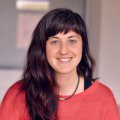
Usue Mori Carrascal
Euskal Herriko Unibertsitatea
Usue Mori obtained a Bachelors degree in Mathematics and a PhD in Computer Engineering from the University of Basque Country UPV/EHU in 2010 and 2015 respectively. She completed a master's degree in Applied Mathematics, Statistics and Computing and a master's degree in Computer Engineering and Intelligent Systems in 2011 and 2013, respectively. Currently, she is an associate professor in the Department of Computer Science and Artificial Intelligence at the University of the Basque Country UPV/EHU and teaches various subjects in the field of mathematics, statistics and machine learning. As research merits, it should be noted that she has participated in more than 20 projects of regional, state and European calls, being IP in four of these projects. She has published 18 articles in JCR journals, 12 of them located in the first quartile and she also has 4 contributions in national and international conferences. She has also participated in 6 R&D contracts with companies of the private industrial and public sector, being IP the most recent. In addition, she has co-directed two doctoral theses and today she co-directs 3 doctoral theses with other researchers.
Borja Calvo Biokimikan lizentziatua eta Informatika Ingeniaritzan doktorea da Euskal Herriko Unibertsitatean. Doktoretza tesian Biomedikuntzaren alorrean adimen artifizialeko metodoak erabiltzen lan egin zuen. 2011n Konputazio Zientziak eta Adimen Artifiziala Saileko irakaslea izatera pasa zen, non Machine Learning arloan bere ikerketa irakaskuntzarekin uztartzen duen. Gaur egun, Informatika Fakultateko Konputazio Ingeniaritza eta Sistema Adimendunen Masterra koordinatzen du, eta Donostiako Informatika Fakultateko Kanpo Harremanetarako eta Ikerkuntzarako Dekanordea da.
Hizlariak
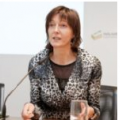
Itziar Alkorta Idiakez
UPV/EHU
Zuzenbidean doktorea eta EHUko Zuzenbide Zibileko irakasle titularra. Bere ikerketaren ildo nagusia bioetika da eta gai horren inguruan hainbat monografia, artikulu zientifiko eta dibulgaziokoak argitaratu ditu. VI eta VII Europako Programa Marko-ko 4 ikerketa-proiektutan parte hartu du, baita Programa Nazionaleko hainbat ikerketa-proiektutan ere. New Yorkeko Hastings Center for Bioethics, Filadelfiako Unibertsitateko Center for Bioethics eta Bordeleko Unibertsitateko irakasle bisitaria izan da. Eusko Ikaskuntzako idazkari nagusia izan zen, eta ondoren Jakiundekoa, Zientzia, Arte eta Letren Akademiakoa. UPV/EHUko irakaskuntzako kalitate eta berrikuntzako errektoreordea 2008 eta 2012 urteen artean, eta hezkuntza-ereduaren garapenaz, kalitate-programez eta unibertsitateko irakasleen prestakuntza eta ebaluazioaz arduratzen da. 2013 eta 2015 urteen artean, Eusko Jaurlaritzako Unibertsitate eta Ikerketa sailburuordea izan zen.

Ainhize Barrainkua Aguirre
Basque Center for Applied Mathematics, PhD student
Ainhize Barrainkua obtained her Bachelor's degrees in Physics and Electronic Engineering from the University of the Basque Country UPV/EHU in 2020. She received her Master's degree in Computer Engineering and Artificial Intelligence in 2021 at the same university. Since late 2021, she is a Ph.D. student at the Basque Center for Applied Mathematics (BCAM) under the supervision of Prof. Jose A. Lozano and Dr. Novi Quadrianto. Her ongoing research primarily revolves around integrating and modeling uncertainty within methodologies from the field of algorithmic fairness.
Borja Calvo Biokimikan lizentziatua eta Informatika Ingeniaritzan doktorea da Euskal Herriko Unibertsitatean. Doktoretza tesian Biomedikuntzaren alorrean adimen artifizialeko metodoak erabiltzen lan egin zuen. 2011n Konputazio Zientziak eta Adimen Artifiziala Saileko irakaslea izatera pasa zen, non Machine Learning arloan bere ikerketa irakaskuntzarekin uztartzen duen. Gaur egun, Informatika Fakultateko Konputazio Ingeniaritza eta Sistema Adimendunen Masterra koordinatzen du, eta Donostiako Informatika Fakultateko Kanpo Harremanetarako eta Ikerkuntzarako Dekanordea da.

Andreas Kotsios
Andreas Kotsios is an associate professor of commercial law at the Department of Business Studies in Uppsala, Sweden and a researcher in the Division of Media Technology and Interaction Design at the Royal Institute of Technology (KTH) in Stockholm. His current research focuses on AI regulation and more specifically on the trustworthiness of AI in medical treatment and data governance for the use of AI in the creative industries.

Eva Lievens
Eva Lievens is an Associate Professor at the Faculty of Law and Criminology of Ghent University, where she leads the research group Law & Technology.A recurrent focus in her research relates to the legal impact of the design and deployment of technology in today’s society, human and children’s rights in the digital environment, and the use of alternative regulatory instruments, such as self- and co-regulation to regulate tech phenomena (e.g. Artificial Intelligence). At Ghent University, Eva teaches ‘Law & Technology’, ‘European Law & ICT’, ‘European Media Law’, ‘Cybercrime, Technology & Surveillance’, and ‘Data Protection Law’. She is the associate editor for the International Encyclopaedia of Laws - Media Law (edited by Prof. Peggy Valcke), and a member of the Editorial Board of the IT & Law Series (T.M.C. Asser Press) and Computer Law & Security Review (WoS).

Usue Mori Carrascal
Euskal Herriko Unibertsitatea
Usue Mori obtained a Bachelors degree in Mathematics and a PhD in Computer Engineering from the University of Basque Country UPV/EHU in 2010 and 2015 respectively. She completed a master's degree in Applied Mathematics, Statistics and Computing and a master's degree in Computer Engineering and Intelligent Systems in 2011 and 2013, respectively. Currently, she is an associate professor in the Department of Computer Science and Artificial Intelligence at the University of the Basque Country UPV/EHU and teaches various subjects in the field of mathematics, statistics and machine learning. As research merits, it should be noted that she has participated in more than 20 projects of regional, state and European calls, being IP in four of these projects. She has published 18 articles in JCR journals, 12 of them located in the first quartile and she also has 4 contributions in national and international conferences. She has also participated in 6 R&D contracts with companies of the private industrial and public sector, being IP the most recent. In addition, she has co-directed two doctoral theses and today she co-directs 3 doctoral theses with other researchers.

Zully Ritter
Dr. Ritter is a scientific staff at the medical informatics department of the University Medical Center Göttingen. She is an expert in biomechanics modeling and simulation of biological processes and diseases from several clinical and preclinical trials. Her research focuses on understanding and simulating processes in extreme environments and space medicine. In muscle and bone research, she has lectured on biomechanics and 3D reconstruction at the periodic congress with a workshop, “Bone and muscles - New Worlds,” certified by the Berlin Medical Association and AMGEN. She has participated in several bed rest studies from ESA - NASA – DLR - Charité Consortium to investigate contra measures a. o. to avoid loss of bone mass. She has worked with industrial partners like Novartis, Amgen, and anwerina. With anwerina, she has invented a medical product with patents in DE, USA, and Asia. Co- and Tutor of Doctoral Thesis at Charité. In the last few years, she has been developing explainable machine learning models using patient data from electronic health records in order to predict the most frequent diagnoses in emergency departments. Such models have been tested in different clinical environments.
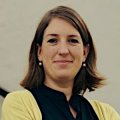
Griet Verhennema
Prof. Dr. Griet Verhenneman is a legal expert in the fields of privacy, data protection, and eHealth. she combines expert theoretical knowledge based on years of academic work with practical experience gained as a Data Protection Officer (DPO). Griet V.is affiliated with the Institute for International Research on Criminal Policy (ICRP) at the Faculty of Law and Criminology, Ghent University, as a full-time lecturer. In her research, teaching, and service, she focuses on legal and ethical questions surrounding privacy, data protection, and AI. Core themes in her work include the protection of sensitive personal data, including health data. She is a core member of the steering committee of Metamedica (a platform for interdisciplinary academic research and integrated education) and i4S (Smart Solutions for Secure Societies). Additionally, Griet Verhenneman works as an external expert at the Authorisation and Advice service of the Belgian Data Protection Authority. Before joining Ghent University, Professor Verhenneman was affiliated with KU Leuven where she worked as a legal researcher and obtained her PhD. As a Data Protection Officer, she worked at the University Hospital Leuven and the University Psychiatric Centre KU Leuven.
Matrikula prezioak
| Matrikula | 2024-10-07 arte |
|---|---|
| 50,00 EUR | |
| 25,00 EUR |
Kokalekua
UPV/EHUko Informatika Fakultatea eta Carlos Santamarian
Manuel de Lardizabal pasealekua, 1, 20018 Donostia / San Sebastián | Elhuyar 2, 20018 Donostia / San Sebastián
Gipuzkoa
UPV/EHUko Informatika Fakultatea eta Carlos Santamarian
Manuel de Lardizabal pasealekua, 1, 20018 Donostia / San Sebastián | Elhuyar 2, 20018 Donostia / San Sebastián
Gipuzkoa
